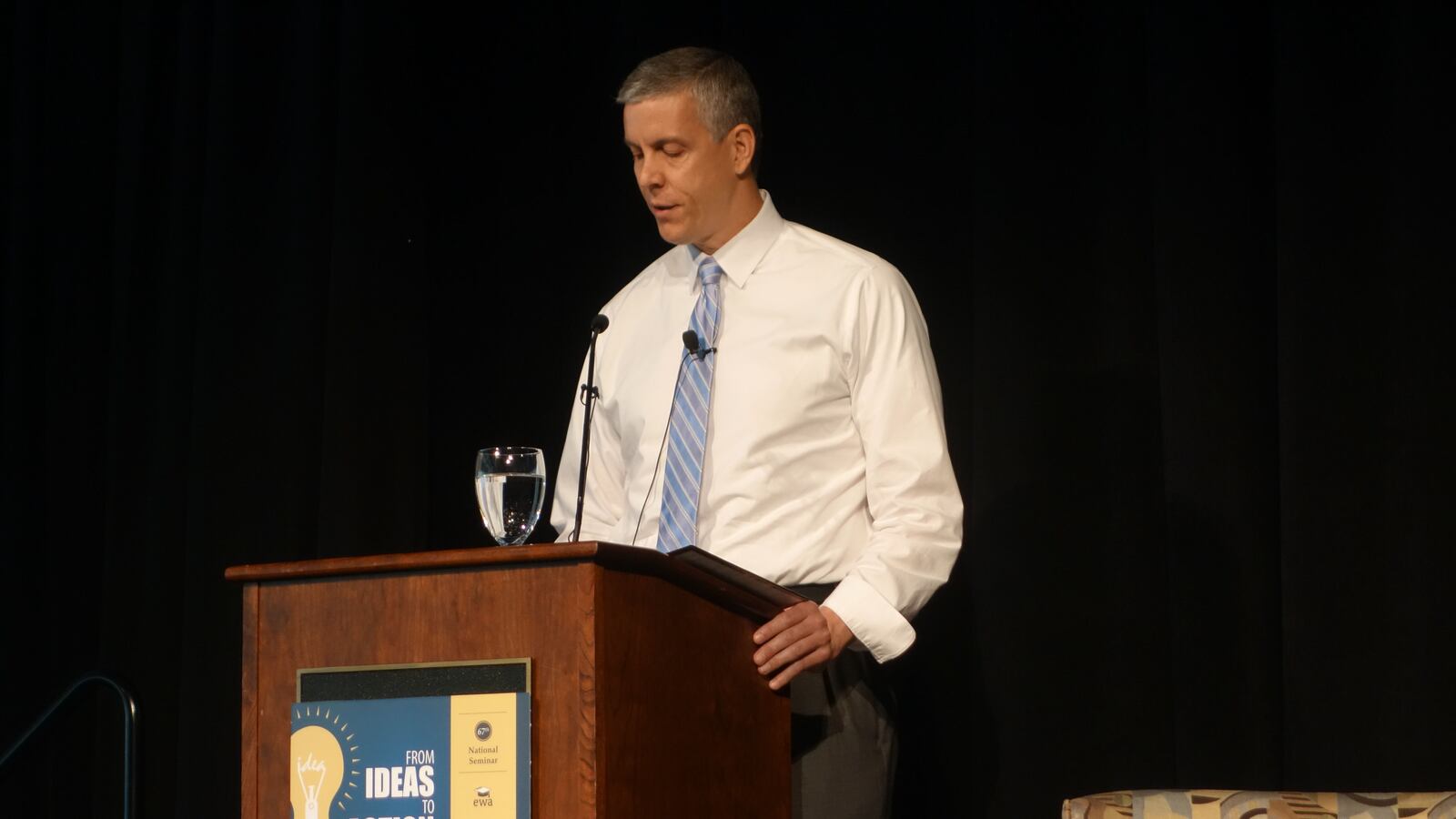U.S. Education Secretary Arne Duncan called for continued support of his education reform priorities in the face of recent opposition and praised Tennessee for taking leadership in what he called this generation’s civil rights issue in Nashville Tuesday.
“While it still has a long long way to go, Tennessee is now the fastest-improving state in the nation,” Duncan said during a keynote address to the Educational Writers Association national seminar at Vanderbilt. The seminar is a gathering of education reporters and advocates across the country.
Tennessee’s early adoption of tough academic standards in 2010 was a key reason for its recent surge on the NAEP test results, according to Duncan. Tennessee showed more growth on the NAEP than any other state in 2013.
He told states such as Tennessee not to back down from implementing his reform priorities such as the Common Core and teacher evaluations. Indiana recently decided to stop implementing the Common Core standards.
“The dummying down of expectations is devastating to young people, their families and communities and our nation as a whole,” Duncan said.
Tennessee faced a similar setback to Duncan’s priorities when the state legislature voted in April to delay the use of the Common Core-aligned PARCC test. Duncan called on local leaders to show courage just as they did in 2010, when they pushed ahead with new academic standards even when the percentage of students who scored proficient on state exams fell from 91 to 35 percent.
“We all know that true proficiency didn’t actually go down. Honesty simply went up,” Duncan said.
Citing the 60th anniversary of Brown vs Board of education decision, which once held schools accountable for racial integration, Duncan said this generation must hold schools accountable for academic outcomes that are still unequal.
“Without accountability there is no imperative to face the hard truths of our education system,” Duncan said.
Like the old civil rights battles, Duncan said the modern ones require winning local support. He described four teachers he met recently at a Tennessee school who spent their evening at a student’s softball game, earning the trust of that student’s mother.
“Tennessee’s example in the history of Brown actually gives me great optimism,” Duncan said. “To paraphrase Dr. King, the moral arc of our schools is long but it bends toward justice, and justice means true equity and opportunity for all.”

